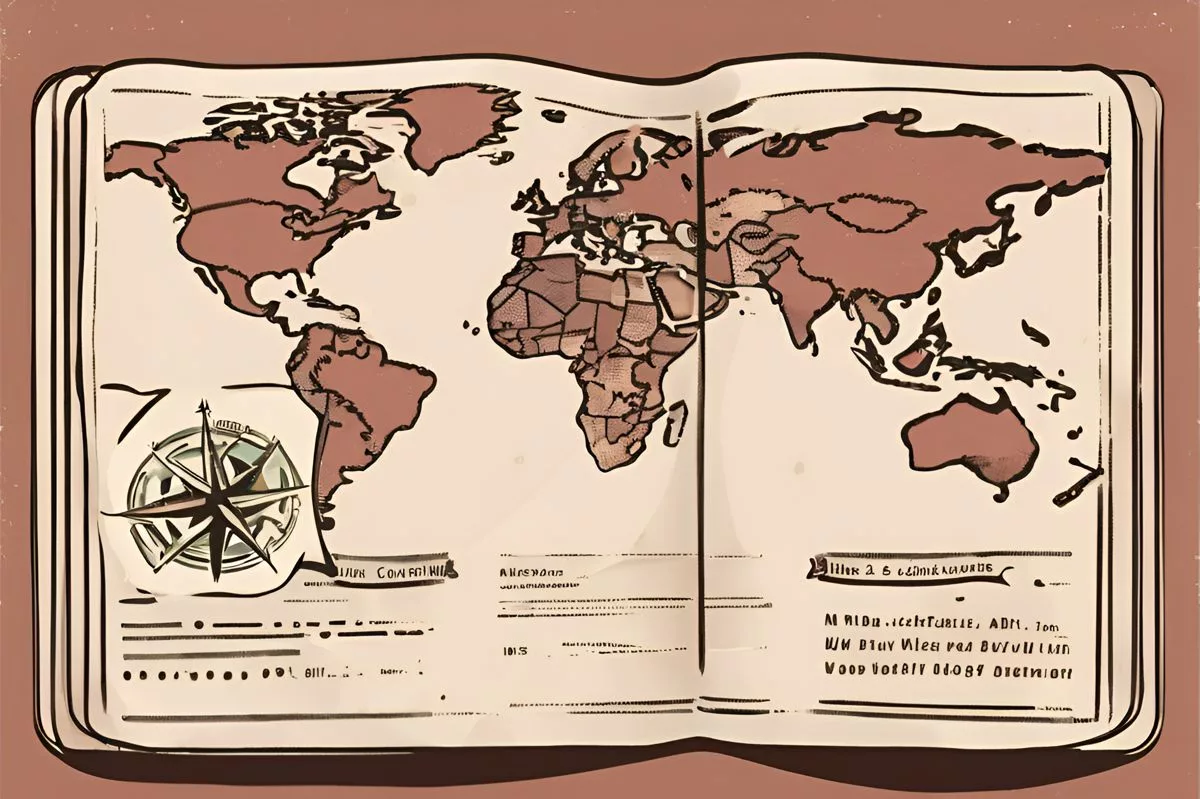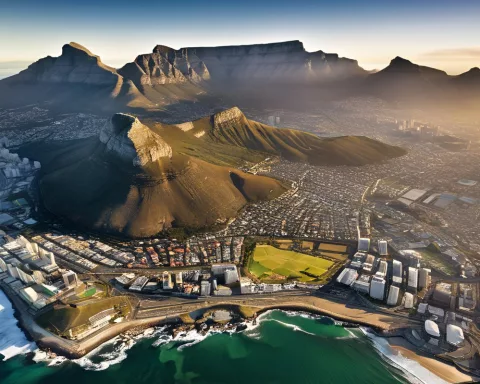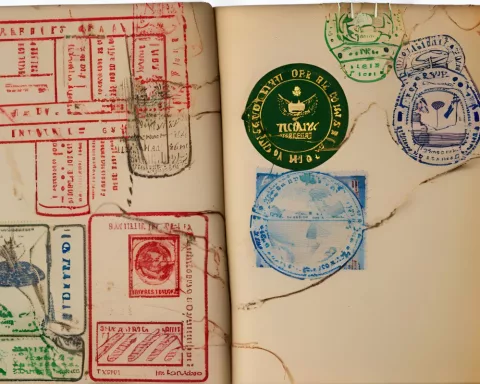South African passport holders can travel without visas to 35 African nations, 18 countries in the Americas, 17 in Asia, 16 in the Caribbean, 3 in Europe, 8 in the Middle East and 10 in Oceania. However, recent changes to visa regulations, such as Ireland’s adjustment, have reduced their global influence. South Africans should stay informed about evolving visa regulations to make the most of their passport’s opportunities.
What visa-free travel destinations are available for South African passport holders?
South Africans can travel without a visa to 35 African nations, 18 countries in the Americas, 17 in Asia, 16 in the Caribbean, 3 in Europe, 8 in the Middle East and 10 in Oceania. However, recent changes to visa regulations for South Africans, such as Ireland’s adjustment, have reduced their global influence. It is important for South Africans to stay informed about evolving visa regulations.
Remarkable Changes in Visa Regulations for South Africans
In a surprising deviation from usual diplomatic practices, South African citizens will now have to acquire a visa to enter Ireland, a destination they were previously able to access without one. The Irish Department of Justice has, as of July 10, adjusted its visa prerequisites for South African passport holders. This adjustment has not only altered the travel patterns for South Africans but also necessitates a transit visa for those planning to travel through Ireland to another location.
This significant adjustment modifies the global influence of the South African passport. According to the Henley & Partners Passport Index, South African passport holders can now only access 107 countries without a visa, a discernible reduction in their ‘passport power’.
Visa-free Travel Destinations for South Africans
To give a more detailed understanding, let’s examine the specifics: South Africans can travel without a visa to 35 African nations, 18 countries in the Americas, 17 in Asia, 16 in the Caribbean, 3 in Europe, 8 in the Middle East and 10 in Oceania. Even though the list is still extensive, Ireland’s departure from this list represents a symbolic blow to South Africa’s global image.
Within Africa, South African tourists still have visa-free or visa-on-arrival access to nations such as Angola, Benin, Botswana, Burundi, Cape Verde Islands, Comoro Islands, Djibouti, Ethiopia, Gabon, Ghana, Guinea-Bissau, Kenya, Lesotho, Madagascar, Malawi, Mauritania, Mauritius, Mozambique, Namibia, Nigeria, Reunion, Rwanda, Senegal, Seychelles, Sierra Leone, Somalia, Tanzania, Togo*, Tunisia, Zambia and Zimbabwe. The asterisks signify countries offering visa on arrival.
Exploring the Americas and Asia with a South African Passport
In the Americas, South African passport holders can visit countries like Argentina, Bahamas, Barbados, Belize, Bolivia*, Brazil, British Virgin Islands, Cayman Islands, Chile, Costa Rica, Dominica, Dominican Republic, Ecuador, El Salvador, Guyana, Haiti, Honduras, and Panama without a visa. Bolivia, notably, offers visa on arrival.
In Asia, 17 countries continue to welcome South Africans, including Armenia, Cambodia, Georgia, Hong Kong (SAR China), Indonesia, Iran, Israel, Jordan, Kyrgyzstan, Laos, Macao (SAR China), Nepal, Oman, Pakistan, South Korea, Sri Lanka* and the Russian Federation. The double asterisks denote countries that provide electronic travel authority (ETA).
South African Passport’s Influence in Europe, Middle-East, and Oceania
The Caribbean remains open, with countries like Antigua and Barbuda, Jamaica, St. Kitts and Nevis, St. Lucia, St. Vincent and the Grenadines, Trinidad and Tobago, and the Turks and Caicos Islands still providing visa-free access.
However, Europe seems to be an area where the South African passport has lost considerable strength, permitting visa-free entry only to Kosovo, the Russian Federation, and the British Virgin Islands.
In the Middle East, countries including Qatar, Saudi Arabia and the Palestinian Territory provide visa-free or visa-on-arrival entry to South Africans. On the other hand, Oceania features countries like Fiji, Micronesia, Cook Islands, Niue, Palau Islands, Samoa, Timor-Leste, Tuvalu, Vanuatu, and the Marshall Islands that permit visa-free or visa-on-arrival visits.
The Current State and Future Implications
This comprehensive overview of destinations South African passport holders can visit without a visa mirrors the current standing of South Africa’s global reach. It attests to the reality that change is the only constant, particularly in international relations. The recent development involving Ireland may be a setback, but South Africa’s overall global influence remains broad, giving its citizens a plethora of opportunities to explore.
However, this change serves as a reminder for South Africans about the ever-evolving nature of international visa regulations, prompting them to stay up-to-date and ready for future adjustments. After all, being well-informed is crucial when traversing the intricate terrains of global travel.
-
What visa-free travel destinations are available for South African passport holders?
South Africans can travel without a visa to 35 African nations, 18 countries in the Americas, 17 in Asia, 16 in the Caribbean, 3 in Europe, 8 in the Middle East and 10 in Oceania. -
What recent changes to visa regulations have affected South Africans’ global influence?
Ireland has adjusted its visa prerequisites for South African passport holders, requiring them to acquire a visa to enter Ireland. This adjustment has reduced South Africa’s global influence, according to the Henley & Partners Passport Index. -
Which African nations allow visa-free or visa-on-arrival access for South African tourists?
South African tourists can enjoy visa-free or visa-on-arrival access to 35 African nations, including Angola, Benin, Botswana, Cape Verde Islands, Comoro Islands, Djibouti, Ethiopia, Gabon, Ghana, Guinea-Bissau, Kenya, Lesotho, Madagascar, Malawi, Mauritania, Mauritius, Mozambique, Namibia, Nigeria, Reunion, Rwanda, Senegal, Seychelles, Sierra Leone, Somalia, Tanzania, Togo, Tunisia, Zambia, and Zimbabwe. -
What are some of the visa-free travel destinations available for South African passport holders in the Americas and Asia?
In the Americas, South Africans can travel without a visa to countries such as Argentina, Bahamas, Belize, Bolivia, Brazil, British Virgin Islands, Cayman Islands, Chile, Costa Rica, Dominica, Dominican Republic, Ecuador, El Salvador, Guyana, Haiti, Honduras, and Panama. In Asia, they can visit countries like Armenia, Cambodia, Georgia, Hong Kong, Indonesia, Iran, Israel, Jordan, Kyrgyzstan, Laos, Macao, Nepal, Oman, Pakistan, South Korea, Sri Lanka, and the Russian Federation. -
Which regions have limited visa-free access for South African passport holders?
In Europe, South Africans can only enter Kosovo, the Russian Federation, and the British Virgin Islands without a visa. The Middle East permits visa-free or visa-on-arrival entry to South Africans in countries including Qatar, Saudi Arabia, and the Palestinian Territory. Oceania features countries like Fiji, Micronesia, Cook Islands, Niue, Palau Islands, Samoa, Timor-Leste, Tuvalu, Vanuatu, and the Marshall Islands that permit visa-free or visa-on-arrival visits. -
Why is it important for South Africans to stay informed about evolving visa regulations?
The recent adjustment to Ireland’s visa prerequisites for South African passport holders serves as a reminder that visa regulations are constantly evolving. Staying informed about these changes is crucial when traveling globally to ensure that South Africans can make the most of their passport’s opportunities.












